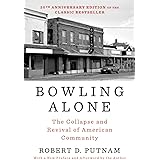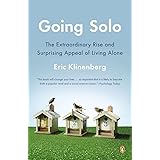
Enjoy fast, free delivery, exclusive deals, and award-winning movies & TV shows with Prime
Try Prime
and start saving today with fast, free delivery
Amazon Prime includes:
Fast, FREE Delivery is available to Prime members. To join, select "Try Amazon Prime and start saving today with Fast, FREE Delivery" below the Add to Cart button.
Amazon Prime members enjoy:- Cardmembers earn 5% Back at Amazon.com with a Prime Credit Card.
- Unlimited Free Two-Day Delivery
- Streaming of thousands of movies and TV shows with limited ads on Prime Video.
- A Kindle book to borrow for free each month - with no due dates
- Listen to over 2 million songs and hundreds of playlists
- Unlimited photo storage with anywhere access
Important: Your credit card will NOT be charged when you start your free trial or if you cancel during the trial period. If you're happy with Amazon Prime, do nothing. At the end of the free trial, your membership will automatically upgrade to a monthly membership.
Buy new:
$29.99$29.99
Ships from: Amazon.com Sold by: Amazon.com
Save with Used - Acceptable
$7.95$7.95
Ships from: Amazon Sold by: -OnTimeBooks-

Download the free Kindle app and start reading Kindle books instantly on your smartphone, tablet, or computer - no Kindle device required.
Read instantly on your browser with Kindle for Web.
Using your mobile phone camera - scan the code below and download the Kindle app.

OK
 Audible sample Sample
Audible sample Sample 


Habits of the Heart, With a New Preface: Individualism and Commitment in American Life Paperback – September 17, 2007
Purchase options and add-ons
- Print length410 pages
- LanguageEnglish
- PublisherUniversity of California Press
- Publication dateSeptember 17, 2007
- Dimensions5.5 x 1 x 8.25 inches
- ISBN-100520254198
- ISBN-13978-0520254190
The Amazon Book Review
Book recommendations, author interviews, editors' picks, and more. Read it now
Frequently bought together

Similar items that may ship from close to you
Editorial Reviews
Review
"(A) brilliant analysis. Easily the richest and most readable study of American society . . . since The Lonely Crowd." ― Newsweek
From the Inside Flap
From the Back Cover
About the Author
Product details
- Publisher : University of California Press; First Edition, With a New Preface (September 17, 2007)
- Language : English
- Paperback : 410 pages
- ISBN-10 : 0520254198
- ISBN-13 : 978-0520254190
- Item Weight : 1.1 pounds
- Dimensions : 5.5 x 1 x 8.25 inches
- Best Sellers Rank: #414,364 in Books (See Top 100 in Books)
- #522 in Comparative Religion (Books)
- #4,203 in Sociology (Books)
- #17,419 in Social Sciences (Books)
- Customer Reviews:
About the authors

Discover more of the author’s books, see similar authors, read author blogs and more

Discover more of the author’s books, see similar authors, read author blogs and more

Discover more of the author’s books, see similar authors, read author blogs and more

Discover more of the author’s books, see similar authors, read author blogs and more
Customer reviews
Customer Reviews, including Product Star Ratings help customers to learn more about the product and decide whether it is the right product for them.
To calculate the overall star rating and percentage breakdown by star, we don’t use a simple average. Instead, our system considers things like how recent a review is and if the reviewer bought the item on Amazon. It also analyzed reviews to verify trustworthiness.
Learn more how customers reviews work on Amazon-
Top reviews
Top reviews from the United States
There was a problem filtering reviews right now. Please try again later.
Because of this, there may be less coherence in the flow of the book than there could be. But there is so much "meat" in the book that it is still a good read. But because there are so many quotable areas, and so many opinions expressed, I'm sure a variety of reviews could flow from the book. Here's mine:
The thesis of the book appears to be the argument that in a simpler America, we were tied by obvious economic and social interactions. We could be fiercely individualistic, e.g., as the Blacksmith of a small community, but we were linked because our livelihood was probably dependent on neighbors, and our social base, probably our church, was common to the community.
But, today, with our "utilitarian individualism" remaining, we have spread out and now are confused by our links to our neighbors and communities. We move more often. We are not as likely to be economically dependent on our immediate neighbors. We can easily be convinced that the "success" we have achieved has been via our own hard work and ambition and that we may not have much responsibility to contribute back to our immediate neighbors or communities.
The book mentions, but does not dwell on, the Biblical tradition/obligation to respect and acknowledge the dignity of all. It also talks about the "underclass," saying at one point that solving its plight is one of the greatest challenges of all and that this will take an enormous amount of money. But it also points out that in today's world, it is also easy for successful individuals to convince themselves that those in the underclass have only themselves to blame and/or to think that welfare reform efforts do more harm than good.
The authors seem to come from a personal therapy background and viewpoint that may have been gathered first-hand: "Many people feel empty and don't know \why they feel that way. They have been sold a bill of goods by our system: cash, convenience and consumerism....The reason you don't feel part of it is because nobody is a part of it."
But, at the same time, they appear to be more than willing to look at various sides of an issue, and not take a "hard," simplistic stand:
Values: There are skeptical references about how people form "values" and if they can be trusted to be anything more than based on self-interest.
Marriage and family: There is support for marriage and family responsibilities, but it is pointed out that "to imagine that society's problems can be traced to individuals with inadequate family values seems to us sadly mistaken." Next to religious commitment, kinship and family provides another basis of "social solidarity."
Being single: It is no longer disgraceful to remain unmarried. Further, no one HAS to have children. And one can leave a marriage one doesn't like even when young children are involved.
Government programs: "Neocapitalist ideology aims to convince us that all government social programs have been disastrous failures."
Religion: "Major religious can move people away from the preoccupation with self toward some larger identity." Religion is one of he most important ways that American's "get involved."
Television: "...it would be difficult to argue that there is any coherent ideology or overall message that it communicates."
Business Leadership: "Leaders are frequently power-hungry bullies without any moral restraints."
Childrearing: Children are trained to be independent self-sufficient individuals. Leaving home involves separation and renewed identity. "Leaving home" may include also leaving the parents' church.
Trend to liberalization: "Younger folks tend to be more liberal, less accepting of hypocrisy, e.g., rejecting the belief that only Christians get to heaven."
Public Service: "Most people involve themselves in social institutions to achieve self-interests or because they feel an affinity with certain others."
Today's metropolitan world: "...a wold of diverse, often hostile groups, interdependent in ways too complex for an individual to comprehend." "...we spend most of our time navigating through immense bureaucratic structures - multiversities, corporations, government agencies." And, don't forget those megachurches!
Get the drift? A ton of subject areas are covered and tons of ideas and opinions expressed.
Plus, throughout the book there are references to Tocqueville's studies of America. He found Americans to be "restless in the midst of prosperity." He also found the "new individualism" strangely compatible with conformism. Reference to Tocqueville weaves in and out in the book.
There is also a sense of limits to what can be done: "The individual's need to be successful in work becomes the enemy of the need to find meaning of one's work in service to others." And "Americans know that society is rigged, as is the marketplace."
And an occasional dose of reality: "Midlife, especially for middle-class American men often marks the end of the dream of being able to move forward without compromise, to achieve `perfection.' Unemployment can be particularly painful." (Or, how about a kid or two with "problems?")
But let's end by getting back to what appears to be the book's thesis, by stringing some quotes from the book together:
"What has failed at every level...is integration...we have failed to remember our community as members of the same body."
In an ideal world "it would become part of the ethos of work to be aware of our intricate connectness and interdependence."
"...traditions help us to know that it does make a difference who we are and how we treat one another."
And, "...in our desperate effort to free ourselves from the constrictions of the past, we have jettisoned too much, forgetting a history that we cannot abandon."
"In a healthy society, the private and public life are not mutually exclusive...they are two halves of a whole, two poles of a paradox." "Taking cared of one's own is an admirable motive. But when it combines with suspicion of and withdrawal from the public world, it is one of the conditions of despotism Tocqueville feared."
Another suggestion is that "only effective institutions - economic, political and social - make complex, modern societies livable." Another: "We are facing trends that threaten our basic sense of solidarity with others." And: "The erosion of meaning and coherence in our lives is not something Americans desire."
But a coherent, confident plan to get us "back" to some state of integration is not really convincing in the book. Instead, we get: "it is not clear that many Americans are prepared to consider a significant change in the way we have been living. The allure of the packaged good life is still strong"...even though..."our material belongs have not brought us happiness." And, there is "no question that many Americans find their contribution of work and private lifestyle satisfying."
Today's politicians of all stripes can score points by saying that "America is not headed in the right direction." The statement is broad and open to interpretation. The statement assumes that government leaders are not to be trusted to make the "right" decisions. But the statement is also shallow and meaningless without specific suggestions/recommendations.
For the most part, this is the problem with "Habits of the Heart." I don't think it is ever very convincing in telling us how to turn the ship of state back in the "right direction." Or even if it truly IS in the wrong direction.
But, as I said earlier, there is so much information and so many interesting ideas included, it is a good read. And, maybe, it becomes the basis for individuals to begin to make decisions within their own lives as to where they fit in their "commitments in American life" and the world.
End of Book Review by George Fulmore.
Edit:
I was able to go back and listen to by setting the speed at 1.2x - at this speed it is a bit less distracting and I have been able to actually listen. I’ll review this after finishing the book - seems an interesting topic.
















